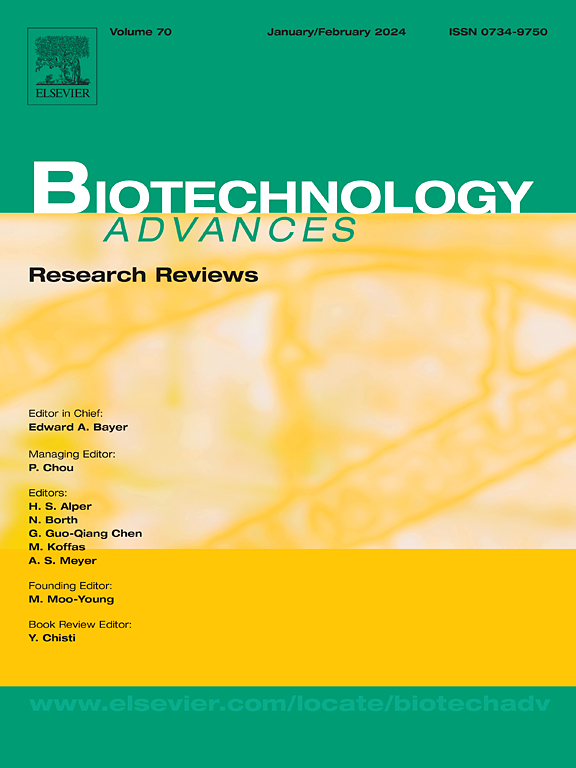AI-driven de novo enzyme design: Strategies, applications, and future prospects
IF 12.1
1区 工程技术
Q1 BIOTECHNOLOGY & APPLIED MICROBIOLOGY
引用次数: 0
Abstract
Enzymes are indispensable for biological processes and diverse applications across industries. While top-down modification strategies, such as directed evolution, have achieved remarkable success in optimizing existing enzymes, bottom-up de novo enzyme design has emerged as a transformative approach for engineering novel enzymes with customized catalytic functions, independent of natural templates. Recent advancements in artificial intelligence (AI) and computational power have significantly accelerated this field, enabling breakthroughs in enzyme engineering. These technologies facilitate the rapid generation of enzyme structures and amino acid sequences optimized for specific functions, thereby enhancing design efficiency. They also support functional validation and activity optimization, improving the catalytic performance, stability, and robustness of de novo designed enzymes. This review highlights recent advancements in AI-driven de novo enzyme design, discusses strategies for validation and optimization, and examines the challenges and future prospects of integrating these technologies into enzyme development.
人工智能驱动的从头酶设计:策略、应用和未来前景
酶对于生物过程和各行业的各种应用是不可或缺的。虽然自上而下的修饰策略,如定向进化,在优化现有酶方面取得了显着的成功,但自下而上的从头设计酶已经成为一种具有定制催化功能的工程新酶的变革方法,独立于自然模板。人工智能(AI)和计算能力的最新进展大大加速了这一领域的发展,使酶工程取得突破。这些技术有助于快速生成针对特定功能优化的酶结构和氨基酸序列,从而提高设计效率。它们还支持功能验证和活性优化,提高新设计酶的催化性能、稳定性和鲁棒性。本文重点介绍了人工智能驱动的从头酶设计的最新进展,讨论了验证和优化的策略,并探讨了将这些技术整合到酶开发中的挑战和未来前景。
本文章由计算机程序翻译,如有差异,请以英文原文为准。
求助全文
约1分钟内获得全文
求助全文
来源期刊

Biotechnology advances
工程技术-生物工程与应用微生物
CiteScore
25.50
自引率
2.50%
发文量
167
审稿时长
37 days
期刊介绍:
Biotechnology Advances is a comprehensive review journal that covers all aspects of the multidisciplinary field of biotechnology. The journal focuses on biotechnology principles and their applications in various industries, agriculture, medicine, environmental concerns, and regulatory issues. It publishes authoritative articles that highlight current developments and future trends in the field of biotechnology. The journal invites submissions of manuscripts that are relevant and appropriate. It targets a wide audience, including scientists, engineers, students, instructors, researchers, practitioners, managers, governments, and other stakeholders in the field. Additionally, special issues are published based on selected presentations from recent relevant conferences in collaboration with the organizations hosting those conferences.
 求助内容:
求助内容: 应助结果提醒方式:
应助结果提醒方式:


